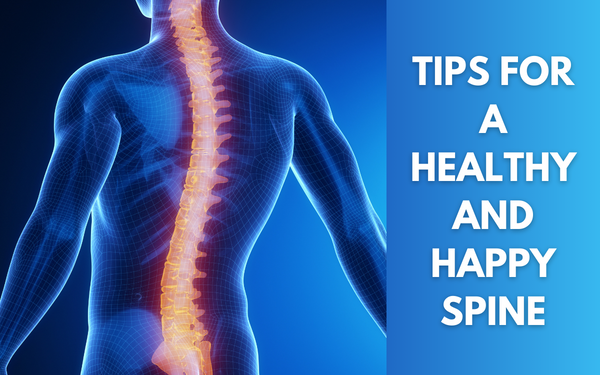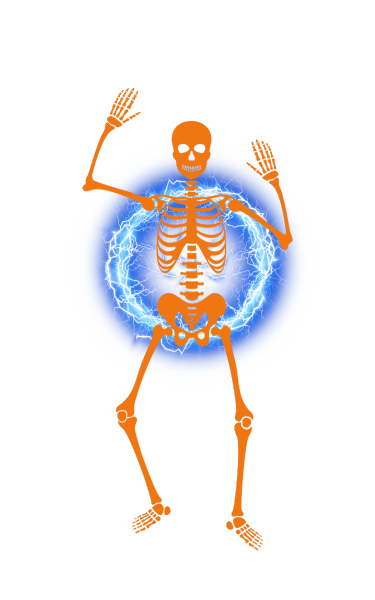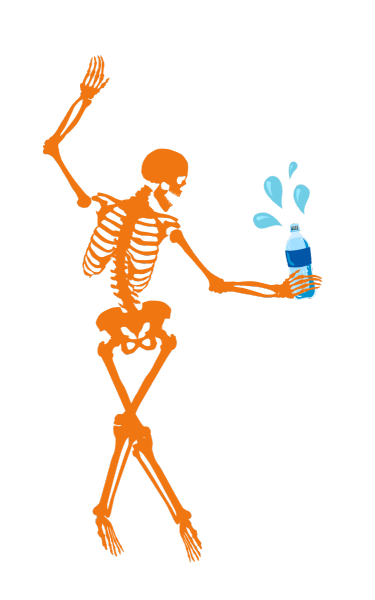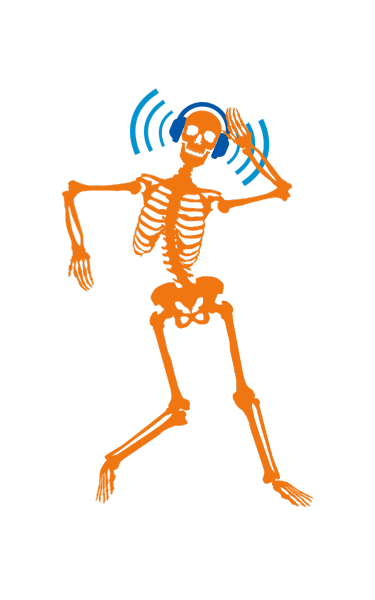Optimizing Spinal Health

October is the “official” Spinal Health Month, so it’s the perfect opportunity to delve into the world of spinal wellness.
Our spine is the foundation of our body, connecting everything with a delicate ecosystem of nerves running from our brain to our limbs. Just like the care we give to our heart or skin, nurturing our spine is essential for overall health and extends the well-being of our body well into our senior years. In this blog, we’ll explore practical tips and insights to help you optimize your spinal health and lead a life of vitality.
 Understand Your Spine’s Importance
Understand Your Spine’s Importance
Your spine is more than just a supporting structure; it’s a complex system that protects your spinal cord and allows movement, balance, and coordination. This complex system also consists of nerves that branch off the spinal cord and exit the spinal column through small openings between the vertebrae. These nerves supply various body parts with the transmission of sensory and motor signals that are imperative to maintaining your overall health.
Prioritize Good Posture
A healthy spine contributes to good posture and balance. Proper posture not only exudes a confident physical appearance, but more importantly, it helps prevent strain on muscles and joints, reducing the risk of musculoskeletal problems. Practicing good posture while sitting, standing, and even sleeping can significantly impact your spinal health. Maintain the natural curves of your spine to prevent unnecessary strain and discomfort.
Stay Active and Exercise
Regular physical activity keeps your muscles strong and also supports a healthy spine. A strong core and back muscles can better support your spine’s natural curves and reduce the risk of injury. Regular stretching exercises, such as yoga, enhance the flexibility of your spine to maintain a full range of motion and reduce stiffness. The spinal discs between your vertebrae will also benefit from exercise, as movement forces the exchange of nutrients within these discs, preventing conditions like herniated discs. Last but certainly not least, exercise also helps with overall spine health, as maintaining a healthy weight can reduce the load on your spine.
Incorporate Ergonomics in Daily Life
Merriam-Webster.com defines ergonomics as “an applied science concerned with designing and arranging things people use so that the people and things interact most efficiently and safely.” Whether at work, at home, or on the go, paying attention to ergonomics —how efficiently and safely you interact with everything in your environment— is imperative. An emerging trend in the era of smartphone use is the prevalence of ‘tech neck,’ characterized by hunching or slouching while utilizing electronic devices. Adjust your workspace, choose the right mattress and shoes, and be mindful of your body’s alignment when using devices. When the spine is aligned correctly, it reduces stress on muscles and ligaments, minimizing the risk of chronic pain or injury.
Lift with Care
Muscles and ligaments attach to the vertebrae and other structures in the spine. These attachments allow for movement and stability, enabling lifting, twisting, and bending activities. Therefore, incorrect lifting techniques can put immense stress on your spine. Remember to bend at your knees, keep the object you’re lifting close to your body, and use your leg muscles to lift rather than your back. Lifting objects with your legs allows your spine to evenly distribute your upper body weight to the pelvis and lower limbs, allowing for efficient movement and reducing the risk of overloading certain areas, possibly leading to injury.
Hydrate, Hydrate, Hydrate
Intervertebral discs have a high water content, which is essential for maintaining their cushioning and shock-absorbing properties. Dehydration can reduce the discs’ water content, causing them to lose their elasticity and height, increasing the likelihood of disc degeneration, where the discs become less effective at absorbing shocks and providing support to the spine. Degenerated discs may lead to pain, stiffness, and reduced mobility. Staying hydrated ensures that the discs between your vertebrae remain lubricated, promoting flexibility and reducing the risk of injuries.
Consume Nutrition for Spinal Health
Your diet plays a significant role in maintaining strong bones and supporting your spine. Include calcium-rich foods, vitamin D sources, and foods with anti-inflammatory properties to nurture your spinal health. The vertebral column contains blood vessels that supply nutrients and oxygen to the spinal structures, including the intervertebral discs. Proper circulation is essential for the health and maintenance of these structures.
Remain Aware of the Mind-Body Connection
Recognizing the connection between mental and spinal health is imperative, as stress and tension can manifest physically in your spine. When stressed, your body often responds by tensing up muscles, including those in your neck and back. Prolonged muscle tension can lead to muscle imbalances and contribute to poor posture, inflammation, tension headaches, neck pain, and back pain. Engage in relaxation techniques such as meditation, yoga, or deep breathing to alleviate mental and physical strain and protect your spine.
Listen to Your Body
A healthy spine can impact overall well-being, as chronic pain and discomfort stemming from spinal issues can negatively affect mental health. Maintaining spine health can contribute to a better quality of life; warning signs such as persistent pain, stiffness, or discomfort will allow your chiropractor to proactively address issues to mitigate the risk of severe conditions from manifesting. Ignoring your body’s signals could exacerbate numerous health problems, so always seek professional help when you experience clear messages from your body that something is “off.”
As we celebrate spinal health, embark on a journey to prioritize and optimize your spinal well-being. By making mindful choices in daily habits, embracing movement, seeking professional guidance, and nurturing a positive mind-body connection, you can unlock the door to a life filled with vitality and comfort. Remember that consistency is vital when implementing these practices into your daily routine, and maintaining a balanced and healthy lifestyle can go a long way in optimizing your spine health and overall well-being.
Regular chiropractic care and adjustments are proactive ways to maintain optimal spinal alignment. A skilled chiropractor can help identify misalignments and provide gentle adjustments to improve function and reduce discomfort.
When you’re searching for a “chiropractor near me,” you can feel confident directing all your chiropractic care-related questions to Dr. Vivian Ebert of LivingWell Chiropractic in Bonita Springs, FL, located in The Brooks Town Center at the northwest corner of Three Oaks Parkway and Coconut Road.
LivingWell Chiropractic provides state-of-the-art chiropractic care, spinal decompression, medical massage, and nutritional guidance with a holistic wellness approach focused on pain relief for patients with musculoskeletal conditions. Centrally located in Bonita Springs, the office is convenient for patients from Naples, Bonita Springs, Estero, and South Fort Myers.
Posted In:
Move Well Articles



